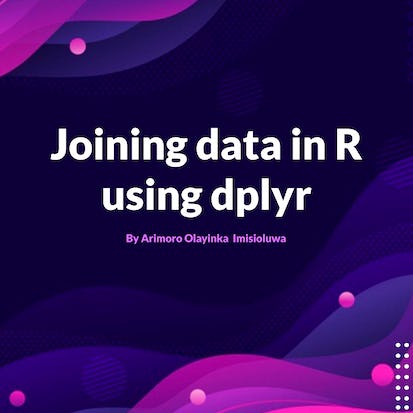- Level Intermediate
- Duration 3 hours
- Course by Coursera
-
Offered by

About
You will need to join or merge two or more data sets at different points in your work as a data enthusiast. The dplyr package offers very sophisticated functions to help you achieve the join operation you desire. This project-based course, "Joining Data in R using dplyr" is for R users willing to advance their knowledge and skills. In this course, you will learn practical ways for data manipulation in R. We will talk about different join operations and spend a great deal of our time here joining the sales and customers data sets using the dplyr package. By the end of this 2-hour-long project, you will perform inner join, full (outer) join, right join, left join, cross join, semi join, and anti join using the merge() and dplyr functions. This project-based course is an intermediate-level course in R. Therefore, to get the most of this project, it is essential to have prior experience using R for basic analysis. I recommend that you complete the project titled: "Data Manipulation with dplyr in R" before you take this current project.Modules
Your Learning Journey
1
Assignment
- Joining Data in R using dplyr
1
Labs
- Joining Data in R using dplyr
4
Readings
- Project Overview
- R Script for the project
- Tibbles Vs. Dataframes
- Links to read articles on join concepts
Auto Summary
"Joining Data in R using dplyr" is an engaging course designed for R users looking to enhance their data manipulation skills within the Data Science & AI domain. Led by Coursera, this intermediate-level course focuses on practical techniques for merging multiple data sets using the powerful dplyr package. Over the span of 2 hours, learners will explore various join operations including inner join, full (outer) join, right join, left join, cross join, semi join, and anti join. The course involves hands-on projects that specifically tackle the integration of sales and customer data sets, ensuring a comprehensive understanding of each join function. This course is ideal for those who have basic experience with R and have preferably completed the "Data Manipulation with dplyr in R" project. Learners can access this course for free, making it an excellent opportunity to advance their data manipulation expertise in a structured and practical setting.

Arimoro Olayinka Imisioluwa


